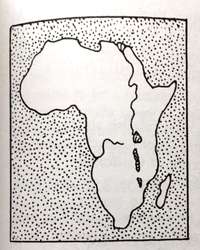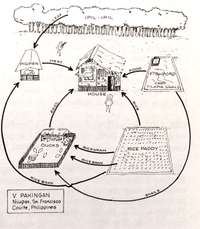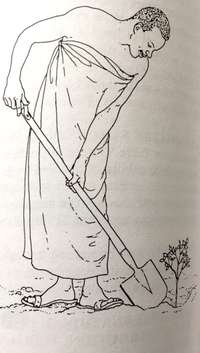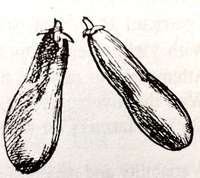- Book Review: Educational and Training Opportunities in Sustainable Agriculture
- A Resource List from ATTRA
- Book Review: Extension and Education Materials for Sustainable Agriculture
- Book Review: Farming for the Future: An Introduction to Low-External Input and Sustainable Agriculture
- ILEIA Newsletter on Low-External-Input Agriculture
- French Books on Tropical Agriculture
- Magazine Review: Les Quatre Saisons du Jardinage
- IIRR (International Institute of Rural Reconstruction) Publications
- Book Review: A Guide to Spanish-Language Sustainable Ag Publications
- Book Review: How to Grow More Vegetables...
- Natural Farming Network
- Organic Farming for Sustainability in East Africa
- The PELUM Association
- Organic Matters, A Networking Newsletter in the Philippines
- Book Review: Sustainable Agriculture and the Environment in the Humid Tropics
- Apprenticeship in Ecological Horticulture
- Internships in Regenerative Agriculture
- "Sustainable Agriculture: Principles and Practices" Course
- "Sustainable Development for the World" Courses
- Correspondence Course on Plant Propagation
EDUCATIONAL AND TRAINING OPPORTUNITIES IN SUSTAINABLE AGRICULTURE, 8th ed., 1995. This USDA educational booklet lists over 100 programs for those interested in studying or gaining experience through university programs, farms, and other organizations in the U.S. and Canada. The institution, contact person, and a brief description of the programs offered are listed. The booklet is available at no cost from Alternative Farming Systems Information Center, National Agricultural Library, Room 304, 10301 Baltimore Blvd., Beltsville, MD 20705-2351; telephone: (301) 504-6559; fax: (301) 504-6409.
A RESOURCE LIST FROM APPROPRIATE TECHNOLOGY TRANSFER FOR RURAL AREAS gives addresses and brief information about internships, apprenticeships, and sustainable growing learning opportunities. The 21-page list includes on-farm experience and other training programs all over the USA. Write ATTRA at P.O. Box 3657, Fayetteville, AR 72702, USA; phone 501/442-9824 or 800/346-9140; fax 501/442-9842.
EXTENSION AND EDUCATION MATERIALS FOR SUSTAINABLE AGRICULTURE: Volumes 1 and 2 (edited by James King and Charles Francis), is a 390-page compilation of ideas and examples of practical teaching materials related to sustainable agriculture. Topics included are cropping systems, nitrogen use, preventative weed management, economics, and lease structures and landlord-tenant agreements. Teaching methods include decision cases, lectures, and discussion topics. A number of curricula from universities and colleges, including lists of topics and references, are given in detail. Cost of each volume is $10, including postage; however, single copies will be supplied free to U.S. addresses while supplies last. Order from Center for Sustainable Agricultural Systems, 225 Keim Hall, University of Nebraska, Lincoln, NE 68583-0949, USA; phone 402/472-2056; fax 402/472-4104; e-mail CSAS003@UNLVM.UNL.EDU.
FARMING FOR THE FUTURE: AN INTRODUCTION TO LOW-EXTERNAL-INPUT AND SUSTAINABLE AGRICULTURE (250 pp.) was written to help development workers assist resource-poor farmers develop productive, sustainable farming systems using locally available resources.
The main themes are: LEISA (low-external-input and sustainable agriculture) and PTD (participatory technology development). The first is an approach that seeks to maximize the use of locally available resources, both human and natural, in ways that are economically, ecologically and socially sound. External inputs are seen as complementary rather than foundational. PTD stresses the combination of indigenous and scientific knowledge to find solutions to farmers' problems. PTD is seen as a stepping stone to LEISA. The book provides background theory, practical ideas, and sources of up-to-date information. Field examples liberally sprinkle the text to illustrate key principles and techniques of LEISA.
Chapter 1 explores the need for sustainable agriculture. Chapter 2 considers the farm as a system and decision making at the farm level. Chapter 3 is titled "Technology development by farmers" and focuses on traditional farming systems, farmer experimentation, farmer innovation and farmers' limitations. Chapter 4 introduces basic concepts of agroecology. Chapter 5 deals with principles upon which to build productive, "site-appropriate" forms of LEISA. Chapter 6 deals with developing LEISA systems in the Tropics. Chapters 7 and 8 deal with PTD and linking farmers and scientists in developing LEISA technologies.
Both missionaries and ECHO's interns have found it a helpful resource. It is often checked out when we look for it and our first copy is already dog-eared. There are many helpful photographs, graphs and drawings as well as numerous boxes giving examples from the field to illustrate key points. What I find particularly helpful is the 72 pages of appendices which alone make it a valuable resource. Appendix A lists specific promising techniques such as: composting, green manuring, use of trap and decoy crops, natural medicines, water harvesting techniques, etc. Appendix B is a glossary of key terms. Appendix C contains a list of suggestions for further reading, an annotated bibliography on sustainable agriculture in the tropics and addresses of organizations concerned with sustainable agriculture. There is also a very good index. This book is thorough and filled with good ideas. The down side to any book that seeks to be exceptionally complete and detailed is that a lot of words are sometimes used to state the obvious for the sake of completeness.
The authors (Coen Reijntjes, Bertus Haverkort, and Ann Waters-Bayer) are all on staff at ILEIA (see below) in the Netherlands. Individual copies are available for about œ7 from the publisher: MacMillan Press, Houndmills, Basingstoke, Hampshire RG21 2XS, UK; phone 44-256-29242; fax 44-256-810526. Available in French (360 pp.; revised francophone bibliography) for FF170 from Karthala, 22-24 Blvd Arago, 75013 Paris, FRANCE; fax 33-1-45352705.
ILEIA NEWSLETTER ON LOW-EXTERNAL-INPUT AGRICULTURE. ILEIA, the Information Centre for "Low-External-Input and Sustainable Agriculture" (LEISA), changed their name in 1996 to the Centre for Research and Information Exchange in Ecologically Sound Agriculture. They have been sharing information on sustainable agriculture since 1982. Their quarterly ILEIA Newsletter (actually it is more like a magazine) currently goes out to more than 10,000 individuals and organizations worldwide.
Each issue focuses on a central theme, such as natural pest control, agroforestry, farmer's networks, etc. One issue included articles on: raising mushrooms as a means of supplementing women's income, using ewe milk, crossbreeding cattle, biological water purification, starting a local library, designing a seed system for smallholders, and smallholder beekeeping. Networking is a goal of each issue with articles based on specific cases from around the world. Contributions of articles are welcomed. Whenever possible, sources of additional information are provided. Each issue reviews new literature and highlights other useful resources relevant to sustainable agricultural development. We have found the newsletter to be a great resource. Yearly subscriptions are $13.75 for individuals in the third world and students worldwide and $27.50 for others. Third world organizations may ask for free subscriptions. Write to ILEIA, Kastanjelaan 5, P.O. Box 64, NL-3830 AB Leusden, NETHERLANDS; phone 31-33-4943086; fax 31-33-4951779; e-mail ileia@ileia.nl.
FRENCH BOOKS ON TROPICAL AGRICULTURE. We forwarded this request from Ron Angert in Haiti to Pete Ekstrand in Zaire. We excerpt his reply. You may want to write to these places for current catalogs for books on other topics as well. "These are the best I have seen. We use them for our teaching here. The ones from the French Foreign Ministry are not too expensive either. Unfortunately one of the best has been out of print for a couple years. It is Precis D'Elevage du Porc en Zone Tropicale. It is excellent! This and a host of other excellent books on agriculture and animal husbandry in the tropics come from the French Ministry of Cooperation and Development. Write them for their complete catalog: Direction De La Documentation Francaise, 29, quai Voltaire, 75344 Paris Cedex 07, FRANCE; phone (1) 40 15 70 00.
[Ed: We obtained catalogs and include the price after each title. US$1=4.9FF in 1/96.] "I have purchased or seen and recommend the following from the French Ministry: Memento de L'Agronome (180FF) is an excellent handbook on everything:  soils, climate, crops, husbandry, pathology, etc. Memento Du Forestier (160FF) is an excellent book on forestry. It does not cover reforestation and does cover fish culture. [None of the following books were in the 1996 catalog; write for current information.] Manuel d'Hygien du Betail et de la Prophylaxie des Maladies Contagieuses en Zone Tropicale is brief and to the point, sort of a field manual. Precis du Petit Elevage is an excellent treatment of poultry and rabbits. Manuel de construction des Batiments pour l'Elevage en Zone Tropicale gives plans for cattle, pork, chickens, and the needs of each. Manuel sur les Paturages Tropicaux et les Cultures Fourrageres is an excellent discussion of pastures and their management. Manuel d'Alimentation des Ruminants Domestiques en Milieu Tropical is an excellent analysis of all foods for ruminants and the needs of these animals, including suggested rations. Precis de Parasitologie Veterinaire Tropicale gives an excellent coverage of parasites found in the tropics.
soils, climate, crops, husbandry, pathology, etc. Memento Du Forestier (160FF) is an excellent book on forestry. It does not cover reforestation and does cover fish culture. [None of the following books were in the 1996 catalog; write for current information.] Manuel d'Hygien du Betail et de la Prophylaxie des Maladies Contagieuses en Zone Tropicale is brief and to the point, sort of a field manual. Precis du Petit Elevage is an excellent treatment of poultry and rabbits. Manuel de construction des Batiments pour l'Elevage en Zone Tropicale gives plans for cattle, pork, chickens, and the needs of each. Manuel sur les Paturages Tropicaux et les Cultures Fourrageres is an excellent discussion of pastures and their management. Manuel d'Alimentation des Ruminants Domestiques en Milieu Tropical is an excellent analysis of all foods for ruminants and the needs of these animals, including suggested rations. Precis de Parasitologie Veterinaire Tropicale gives an excellent coverage of parasites found in the tropics.
"Les Principales Cultures en Afrique Centrale is an excellent book on the cultivation of ALL tropical crops. It is in-depth and covers all the diseases and the processing of the crops. Order from Patrimoine Du Musee Royal De L'Afrique Centrale, 13 steenweg op Leuven, B-1980 Tervuren, Belgie-BELGIUM. Agriculture Tropicale en Milieu Paysan Africain (770 FB) does an excellent job on all the basics of agriculture and could be used as a text for the beginning classes without changes. It has incredible pictures on the basics: soils, biology, fertilizers, nutrition, water and its movements, spacings, composting, etc. You may even want to learn to read French once you see it!" (I ordered it. He is right, I sure wish I could read it. The pictures are intriguing.) Order from Terres et Vie, 13, rue Laurent Delvaux, 1400 Nivelles, BELGIUM, or Enda Pronat, B.P. 3370, Dakar, SENEGAL. (Terres et Vie also has the excellent series "Land and Life" which receive comparable reviews. The illustrations make these books very useful. Contact Terres et Vie, Rue Laurent Delvaux 13, 1400 Nivelles, BELGIUM; or CTA, Postbus 380, 6700 AJ Wageningen, NETHERLANDS.)
LES QUATRE SAISONS DU JARDINAGE, an organic gardening magazine in French, is available from the association Terre Vivante in southern France. The publication is a lively mix of practical information on selection and organic culture of featured fruits and vegetables, ideas on techniques and simple equipment of use to the farmer, and articles related to animals, ecology, and cooking. Most pages have good color photos or summary diagrams and charts. The magazine is temperate in focus, but gives new ideas on methods which may be adapted. Six issues per year cost 219FF (about US$42), overseas.
Those who may be passing through France may wish to visit the Terre Vivante European Ecological Center, which has working demonstrations on sustainable living. Those interested in Les Quatre Saisons or the Center can contact Terre Vivante, Domaine de Raud, B.P. 20, 38711, MENS C‚dex, France; fax: 76.34.84.02.
IIRR (INTERNATIONAL INSTITUTE OF RURAL RECONSTRUCTION)  PUBLICATIONS. We mentioned IIRR's Agroforestry Technology Information Kit as a good summary of proven agroforestry technologies. Four more publications worth mentioning: Farmer-Proven Integrated Agriculture-Aquaculture: A Technology Information Kit ($15), Low-External-Input Rice Production (LIRP) Technology Information Kit ($17), The Bio-Intensive Approach to Small-Scale Household Food Production ($16) and Resource Book on Sustainable Agriculture for the Uplands ($15). The first three are along the same lines as the Agroforestry Kit; practical, well-illustrated collections of proven, basic, sustainable technologies for resource-poor farmers. Each is a collection of individual packets in a folder rather than a book. The Resource Book is a 200-page collection of articles on topics such as: soil and water conservation, land tenure, animal production, intensive feed gardens, agroforestry, and agroforestry seed technology. Another title which we have not seen, but may be of interest to some is: Participatory Approach to Rural AIDS Education: A Workshop Manual ($16).
PUBLICATIONS. We mentioned IIRR's Agroforestry Technology Information Kit as a good summary of proven agroforestry technologies. Four more publications worth mentioning: Farmer-Proven Integrated Agriculture-Aquaculture: A Technology Information Kit ($15), Low-External-Input Rice Production (LIRP) Technology Information Kit ($17), The Bio-Intensive Approach to Small-Scale Household Food Production ($16) and Resource Book on Sustainable Agriculture for the Uplands ($15). The first three are along the same lines as the Agroforestry Kit; practical, well-illustrated collections of proven, basic, sustainable technologies for resource-poor farmers. Each is a collection of individual packets in a folder rather than a book. The Resource Book is a 200-page collection of articles on topics such as: soil and water conservation, land tenure, animal production, intensive feed gardens, agroforestry, and agroforestry seed technology. Another title which we have not seen, but may be of interest to some is: Participatory Approach to Rural AIDS Education: A Workshop Manual ($16).
Each is available by ordering prepaid from IIRR, 475 Riverside Drive, Room 1035, New York, NY 10115, USA; phone 212/870-2992; 212/870-2981; e-mail iirr@cce.cornell.edu. Prices of each are noted above, postage and handling is an additional 15% for U.S. orders and 20% for overseas orders (surface mail). In Asia, contact their Philippine office for much lower prices due to postage: IIRR Bookstore, Silang, Cavite 4118, PHILIPPINES; phone: 63-969-9451; fax 63-969-9937; e-mail iirr@phil.gn.apc.org.
A GUIDE TO SPANISH-LANGUAGE SUSTAINABLE AG PUBLICATIONS (90 pp.) has English abstracts of 74 easy-to-read publications in Spanish on sustainable farming. Availability and reading level for each document are listed. Send a check or money order for $10 payable to "U.C. Regents" at University of California Sustainable Agriculture Research and Education Program, Davis, CA 95616-8716, USA.
HOW TO GROW MORE VEGETABLES... by John Jeavons is the basic guide to the biointensive method of food production, which maximizes resource efficiency in sustainable food production. Complete growing guides are given for hundreds of crops, and garden planning and preparation is highlighted. This book is packed full of information. Available in English, Spanish, French, German, Russian, Hindi, and Braille at various prices ($6-$19); write for a current Bountiful Gardens catalog (free to US addresses, US$2 elsewhere) from Ecology Action, 5798 Ridgewood Road, Willits, CA 95490, USA; phone orders 707/459-6410, or see it on the Internet at http://www.olympus.net/gardens/welcome.html.
NATURAL FARMING NETWORK links agencies cooperating to promote working  examples of sustainable agriculture in Zimbabwe. They also have some excellent publications. Production Without Destruction (188 pp.) is a primer on organic growing and a manual for teachers of sustainable systems. It would also serve as an excellent handbook for the beginner in tropical agriculture. Clearly-written text, with charts/pictures on most pages, make this a valuable textbook or reference tool on a wide variety of topics. Chapters include: Agriculture and ecological systems, Soil, Water, Plant propagation, Trees, Pests and Weeds, Managing a sustainable farm, Improved gardening practices, Dryland cropping, Integrating animals, and more. See the review of Natural Pest and Disease Control, one of the most practical resources we have seen on this topic, in the chapter on Plant Protection. All prices include surface shipping: Production Without Destruction is US$7 on the African continent; $9 elsewhere; Pest and Disease Control is US$6 within Africa; $8 elsewhere, from the Natural Farming Network, P.O. Box CY 301, Causeway, Harare, ZIMBABWE; fax 723056.
examples of sustainable agriculture in Zimbabwe. They also have some excellent publications. Production Without Destruction (188 pp.) is a primer on organic growing and a manual for teachers of sustainable systems. It would also serve as an excellent handbook for the beginner in tropical agriculture. Clearly-written text, with charts/pictures on most pages, make this a valuable textbook or reference tool on a wide variety of topics. Chapters include: Agriculture and ecological systems, Soil, Water, Plant propagation, Trees, Pests and Weeds, Managing a sustainable farm, Improved gardening practices, Dryland cropping, Integrating animals, and more. See the review of Natural Pest and Disease Control, one of the most practical resources we have seen on this topic, in the chapter on Plant Protection. All prices include surface shipping: Production Without Destruction is US$7 on the African continent; $9 elsewhere; Pest and Disease Control is US$6 within Africa; $8 elsewhere, from the Natural Farming Network, P.O. Box CY 301, Causeway, Harare, ZIMBABWE; fax 723056.
These books are also available in local currencies through the following organizations, which may be able to help you with other aspects related to sustainable agriculture: BOTSWANA: Attn. R. Clarke, Permaculture Trust of Botswana, P Bag 47, Serowe; KENYA: Attn. J. Ngugi Mutura, Sustainable Agricultural Community Dev't Programme (SACDEP), P.O. Box 44752, Nairobi; LESOTHO: Attn. M. Letela, Berea Agricultural Group, Assumption High School, Bag Box 572, Teyateyaneng 200; SOUTH AFRICA: Attn. C. Nottingham, Planner Bee Plant Care, P.O. Box 3093, Cresta 2118, Johannesburg; TANZANIA: Attn. C. C. Rwechungura, Tanzania Org. of Permaculture Promoters (TOPP), P.O. Box 9421, Dar es Salaam.
ORGANIC FARMING FOR SUSTAINABILITY IN EAST AFRICA is a series of 3-week workshops annually for 4 years (until 1999). Open to NGO or government professional extension and training staff in East Africa. Contact Mr. J. W. Njoroge, Kenya Institute for Organic Farming, P.O. Box 34972, Nairobi, KENYA.
THE PELUM ASSOCIATION (participatory ecological land-use management) works throughout east and southern Africa to promote sustainable resource use. Their practice-oriented workshops (Zambia, Tanzania, and elsewhere) cover course design, training materials development, and facilitation and information sifting skills for trainers in sustainable agriculture. For more information, write the Workshop Coordinator, PELUM Association, PO Box CY 301, Harare, ZIMBABWE; fax 263-4-744470. (In Zambia, also contact Chileshe Chilangwa, Harvest Help, Box 36548, Lusaka; in Tanzania, Cleophas Rwechungura, TOPP, Box 9421, Dar es Salaam.)
ORGANIC MATTERS, A NETWORKING NEWSLETTER IN THE PHILIPPINES. Those of you working in the Philippines or abroad will surely want to receive this publication on Philippine Low-External-Input Sustainable Agriculture (LEISA). The articles are interesting because they deal with farmers' actual experiences with many of the techniques about which we routinely write and correspond. Organic Matters is published three times a year and wants to be a medium for exchange of experiences, information and discussions about LEISA. Recent issues presented a wide range of articles about gender and LEISA, participatory methods, food security, upland LEISA, and using marine organisms as organic fertilizers. Subscriptions are free. Write to Organic Matters, SNV, P.O. Box 7463, Domestic Road, 1300 Pasay City, Metro Manila, PHILIPPINES; e-mail SNVPHIL@misa-pfi.net.
SUSTAINABLE AGRICULTURE AND THE ENVIRONMENT IN THE HUMID TROPICS (702 pp., hardcover, US$49.95 in North America) provides an overview of sustainable land use options, including many forestry systems, for wet zones in the tropics. Two thirds of the book gives in-depth accounts of population, agronomic, historic, economic, resource, policy, and other factors related to land use planning in seven countries. This book would be particularly useful to those in the countries profiled: Brazil, Ivory Coast, Indonesia, Malaysia, Mexico, the Philippines, and Zaire. Contact National Academy Press, 2101 Constitution Ave. NW, Box 285, Washington, D.C. 20055, USA; phone 800/624-6242 or 202/334-3313; fax 202/334-2451; http://www.nap.edu.
APPRENTICESHIP IN ECOLOGICAL HORTICULTURE is offered for six months each year by the University of California, Santa Cruz. The program emphasizes hands-on learning "with instruction in traditional organic horticulture, stressing ecological interactions between plants, soils, climate, insects and pathogens." Some formal classes are held, but most instruction occurs through the actual work of growing, harvesting and marketing produce. Apprentices gain experience in organic production on both a hand-dug garden scale and a tractor-cultivated field scale. The program runs from April to October; applications are due early November (earlier for international applicants).
The apprenticeship is held at the University's 25-acre farm and 2-acre garden. The garden is the site where the French-intensive biodynamic method of horticulture first gained recognition in the United States. The 1996 tuition is $2200; some scholarships are available. Graduates receive a "Certificate in Ecological Horticulture" and 15-20 extension credits. (Whether these transfer to other institutions is at the discretion of those institutions.) Students live on the farm in tents. (It does not rain at that time of year.) For an application and further details write to Apprenticeship Coordinator, Center for Agroecology and Sustainable Food Systems, University of California, 1156 High St., Santa Cruz, CA 95064 USA; phone 408/459-2321; fax 408/459-2799.
INTERNSHIPS IN REGENERATIVE AGRICULTURE. The Rodale Institute Experimental Farm hires interns to assist scientists in research plot establishment and maintenance, data collection and report writing. This year they will have about 12 paid openings in the farming systems, new crops, horticulture, and entomology programs. Starting and ending times are flexible, but generally run April through October. Unpaid internships can be negotiated throughout the year. Write Kim Frederick, Rodale Institute Experimental Farm, 611 Siegfriedale Road, Kutztown, PA 19530, USA.
"SUSTAINABLE AGRICULTURE: PRINCIPLES AND PRACTICES" course is offered (June 24-August 16 in 1996) at the University of California-Davis (8 units, pass/fail grading, $613). Lectures, laboratories and discussions are combined with three mornings of practical field experience each week and numerous field trips. Emphasis is on the biology and management of agroecosystems. The social, economic and political aspects of agriculture are also examined. Most examples are drawn from California agriculture, but international topics are also discussed. Contact Mark Van Horn, Student Experimental Farm, Dept. of Agronomy, Univ. of California, Davis, CA 95616, USA; phone 916/752-7645.
"SUSTAINABLE DEVELOPMENT FOR THE WORLD/Desarrollo Sostenible para el Mundo." Two 14-day intensive courses (one in western Oregon, USA--$750, and one in Tlaxcala, Mexican tropical highlands--$1100) are sponsored by the Zopilote Association. The courses are opportunities to exchange experiences and practical tools for sustainable living. Contact Zopilote Association, Box 123, Cottage Grove, OR 97424, USA; phone 541/942-2005/fax -3021. The Cob Cottage Company at the same address has courses on building earthen houses.
CORRESPONDENCE COURSE ON PLANT PROPAGATION. Pennsylvania State University offers the undergraduate course "Hort 202: Plant Propagation" (3 credits) by mail. It has received awards in a national competition sponsored by the University Correspondence Course Association. Total cost to take Hort 202 at home is $492.65, which covers the tuition, two textbooks, a study guide and two video tapes. You can register through the Independent Learning Program, Pennsylvania State University, 128 Mitchell Bldg., University Park, PA 16802-3693, USA; phone 1/800/252-3592 in PA, 458-3617 elsewhere, or 814/865-5403.